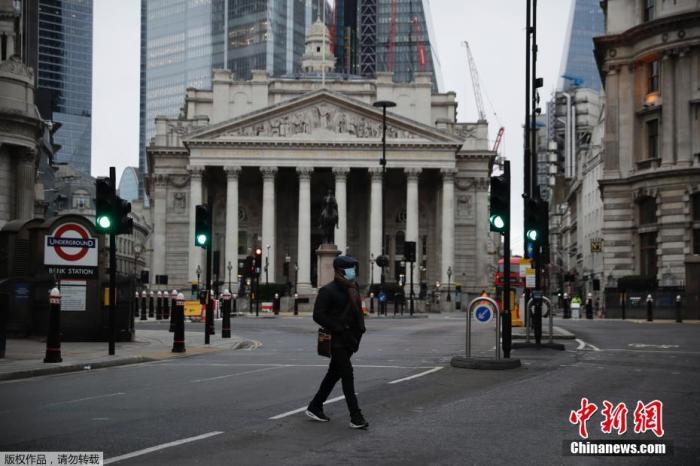China News Service, January 6th. According to a report by the British Broadcasting Corporation (BBC) on the 6th, recently, a new variant of the new coronavirus strain discovered in South Africa has spread to many countries including the United Kingdom.
Experts are urgently studying, hoping to understand the risks brought by this mutant strain.
In this regard, the BBC published an article sorting out six key questions about this mutated new coronavirus.
Data map: On July 22, 2020, local time, in Johannesburg, South Africa, a customer purchased disinfection supplies and masks and other anti-epidemic supplies in a pharmacy.
Photo by China News Agency reporter Wang Xi
What is the new mutant strain?
According to reports, all viruses, including the new coronavirus, mutate.
These small genetic changes appear as the virus continues to replicate in order to spread and become stronger.
Most mutations have no consequences, a few even inhibit the existence of the virus, but some make the virus more contagious or pose a threat to the host, that is, humans.
The mutant new coronavirus strain found in South Africa is called "501Y.V2".
What do the experts say?
The mutant new coronavirus strain found in South Africa is different from another mutant new coronavirus strain that British scientists have been studying recently.
However, these two new variants seem to be more contagious, so the problem is that stricter isolation measures may be required to control the spread of the virus.
Scientists say that although the changes in the mutated new coronavirus strains discovered in the UK are unlikely to damage the effectiveness of the current vaccine, the mutations in the mutated new coronavirus strains found in South Africa may affect the vaccine’s effectiveness to a certain extent. Features.
To determine whether the mutated new coronavirus strain found in South Africa affects the effectiveness of the vaccine, and to what extent it affects the effectiveness, more tests are needed, but the possibility of complete failure of the vaccine is quite small.
Experts also said that even in the worst case, if necessary, the vaccine can be redesigned and adjusted within a few weeks or months to make it better for new mutations.
On January 5, 2021 local time, the United Kingdom adopted the third stringent blockade, and the streets of London are sparsely pedestrian.
The picture shows a pedestrian crossing the street in front of the Royal Exchange.
Are mutant strains more dangerous?
There is currently no evidence that any mutated new coronavirus will cause more serious diseases.
And measures such as washing hands, keeping distance from others, and wearing masks will still help prevent the spread of the new coronavirus.
How far has the mutant new crown virus spread?
At present, Austria, Norway, and Japan have successively reported cases of infection with the mutant new coronavirus strain found in South Africa.
Two cases of infection have also been detected in the UK.
Both have had contact with people who have been to South Africa.
What is the global response to this mutant strain?
Many countries, including the United Kingdom, have suspended flights from South Africa and restricted flights to South Africa.
Those who have been to South Africa recently, and those who have been in contact with them, have been told to quarantine immediately.
Public health authorities and scientists are studying this variant and will soon publish their findings.
Susan Hopkins, the chief medical adviser for the new crown of the Public Health Agency of England, said, “We have made understanding the potential risks that this variant may cause as a priority. But the most important point is that there is currently no evidence that this This variant can cause more serious diseases, and there is no evidence that the approved vaccine has no effect on this variant."
At the Rocky Health Center in Dundee, Scotland, a nurse injected an 82-year-old man with the new crown vaccine.
Faced with the threat of the new variant virus, Scotland and Wales have also made similar prevention and control decisions.
What do South African scientists say?
South African scientists said that the mutated new coronavirus strain found in South Africa may be more resistant to existing vaccines being promoted in the UK and elsewhere. This concern is "reasonable."
Professor Shabir Madhi, who is in charge of the Oxford-AstraZeneca vaccine trial in South Africa, told the BBC that "this concern is still on the theoretical level, and it is reasonable to worry that the South African virus variant may be more resistant."
Professor Barry Schoub, chairman of the South African Government’s Vaccine Advisory Committee, said the “preliminary evidence” of the test does not indicate that the mutation will allow the virus to “escape” the effects of existing vaccines.
Professor Shabu quoted the results of laboratory tests as saying that the vaccine seems to be very effective and that the vaccine still has a neutralizing effect on the new variant.
However, Professor Matti said that critical laboratory tests have not yet begun, and the efficacy of the vaccine against new variants will only be known "in the coming weeks."
How does the World Health Organization respond?
The World Health Organization announced on December 31, 2020 that since the beginning of the new crown epidemic, it has received several reports of abnormal public health events that may be caused by the new crown SARS-CoV-2 variant.
The WHO stated that it will regularly assess whether the variant will cause changes in infection rates, clinical manifestations and severity of the disease, and assess whether the variant will affect response measures including diagnosis, treatment and vaccines.

